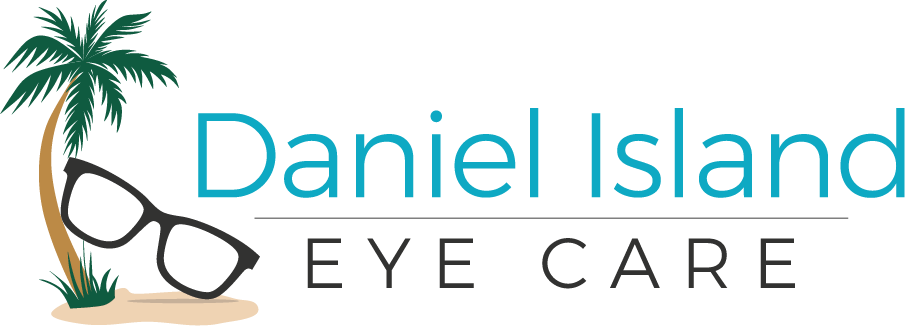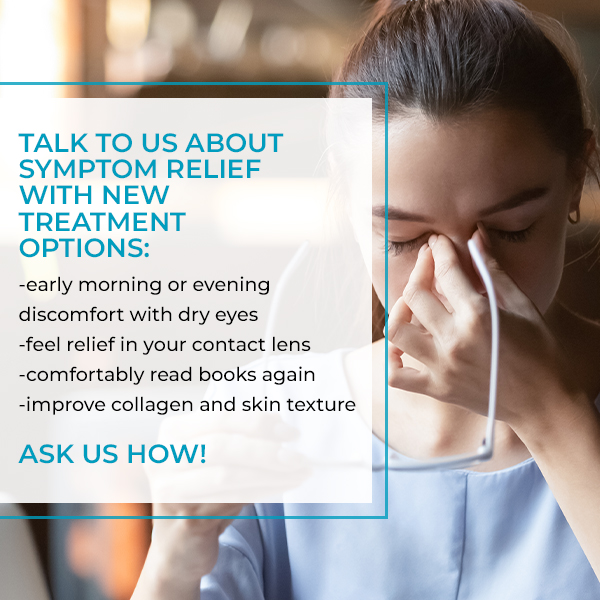You may be wondering what kind of coverage you have—or should have—when it comes to vision insurance. Vision insurance plays a crucial role in maintaining eye health and helping individuals access essential eye care services.
Whether your insurance is through an employer-sponsored plan or individual policy, understanding your coverage can help you make the most of it.
Vision insurance typically covers essential eye care services, and sometimes more, such as LASIK. Determining which insurance plan is right for you depends on a variety of factors, including your needs, what your employer offers, and the amount you’re willing to spend individually.
If you have questions about whether your vision insurance plan is accepted and what it might cover, reach out to our team at Daniel Island Eye Care.
Types of Vision Insurance
There are 2 main types of vision insurance: employer-sponsored plans and individual plans.
Employer-Sponsored Plans
These plans may cover you, your spouse, and your children and are generally paid for, at least in part, by your employer. Many Americans receive vision coverage through their employers.
These plans are often part of a comprehensive benefits package and may cover a range of services, from routine eye exams to eyeglasses or contact lenses. Employees typically contribute to the cost through payroll deductions, making it a convenient option for many.
Individual Plans
Individuals who don’t have access to employer-sponsored vision insurance can opt for individual plans. These are policies purchased independently and may offer more flexibility in terms of coverage options.
While individuals bear the full cost, this approach allows for tailoring coverage to specific needs. These plans may offer more flexibility in terms of coverage and allow you to choose the level of coverage that makes the most sense for you.
Commonly Covered Services
Vision insurance typically covers essential eye care services, like eye exams, glasses, and contact lenses.
Eye exams are generally covered once per year under most plans, and this can include both a standard eye exam as well as a contact lens exam if you wear them. These exams help detect vision issues, eye diseases, and other potential problems early on.
If you need glasses or contacts, most plans will cover all or a portion of their cost. Some plans may provide allowances for lens coatings or prescription sunglasses. Your plan may also cover the cost of contact lens exams, fittings, and follow-up appointments if necessary.
Even if you don’t need vision correction, it’s a good idea to get an annual eye exam to ensure that your eyes are healthy and that your prescription—if you have one—is up to date.
Does Vision Insurance Cover LASIK?
Now, let’s look at the big question: does vision insurance cover LASIK? The answer is: it depends! While vision insurance generally covers routine eye care, glasses, and contact lenses, LASIK surgery is often considered an elective procedure. Some plans offer coverage for LASIK, while others do not.
If this is something you’re interested in, it’s worth checking with your insurance provider to see if it’s covered. Additionally, if you have a flexible spending account (FSA) or a health savings account (HSA), you may be able to use those funds to cover the cost of LASIK.
Choosing the Right Vision Insurance Plan
When it comes to choosing the right vision insurance plan, there are a few things to keep in mind. First, consider what kind of coverage you need. Do you wear contacts? Do you have a specific brand of glasses that you prefer? Make sure the plan you select covers what you need.
Keep in mind the cost of the plan, and be sure to read the fine print. Make sure you understand what is and isn’t covered, as well as any restrictions or limitations on coverage.
Assess Your Needs
Understand your eye care needs, including how frequently you require eye exams, whether you wear glasses or contacts, and if you have specific preferences for eyewear.
Compare Plans
Evaluate different vision insurance plans, considering factors like coverage for eye exams, eyewear, and potential out-of-pocket expenses. Look for plans that align with your individual or family requirements.
Network Providers
Check the network of eye care providers associated with the plan. Ensure that your preferred eye care provider is within the network to maximize benefits.
Cost Considerations
Assess the overall costs, including premiums, copayments, and deductibles. Balance these costs with the coverage provided to find a plan that fits your budget while meeting your eye care needs.
What Insurance Does Daniel Island Eye Care Accept?
At Daniel Island Eye Care, we accept numerous payment options and insurance coverage, including the following:
We aim to make eye care accessible, if you have any questions, ask our friendly team. If you don’t see your insurance listed, please call our office to find out about coverage.
Navigating Eye Care with Vision Insurance
Vision insurance is an important aspect of eye health and can help ensure that you have access to regular eye exams, glasses, and contacts. By carefully assessing your needs, comparing plans, and considering associated costs, you can choose the right vision insurance plan and take a step toward clearer vision and healthier eyes.
The talented team at Daniel Island Eye Care is here to help you with any questions you might have about vision insurance or your eye health. Contact us to book an appointment or give us a call to learn more about our accepted insurance plans.





